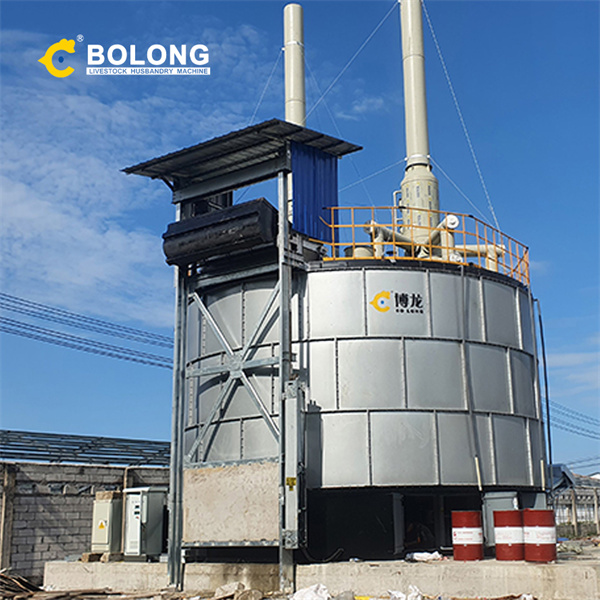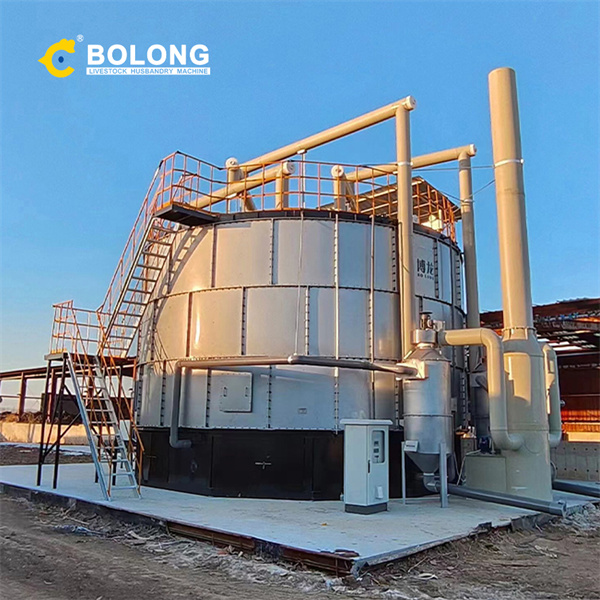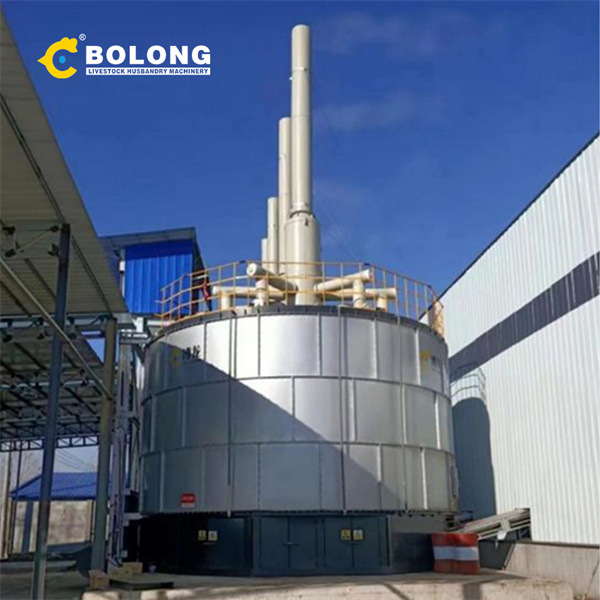Under the background of sustainable development of agriculture today, the importance of organic fertilizer is becoming increasingly prominent, and the technological innovation of organic fertilizer composting machine, as the key equipment for producing organic fertilizer, has become the core driving force for the development of the entire industry. Technological innovation not only determines the performance and efficiency of the composting machine, but also profoundly affects the quality and production cost of organic fertilizer, which is of great significance to the green development of agriculture.
The traditional organic fertilizer composting machine has a single stirring method, uneven material mixing, and insufficient contact between microorganisms and organic materials, resulting in a long fermentation cycle and unable to meet the needs of large-scale production. When processing livestock and poultry manure, some materials are at the edge of the composting machine, and the stirring is insufficient, which seriously affects the fermentation efficiency.
The old composting machine has high energy consumption. In order to maintain the fermentation temperature and environment, a lot of energy is consumed, especially in winter or cold areas, the heating system runs for a long time, which is costly. In addition, some composting machines have poor thermal insulation performance and serious heat loss, which further aggravates energy consumption.
The existing composting machines have limited intelligence, and the control of key parameters relies on manual operation and simple sensors, which has high labor costs and is prone to errors. When the temperature in the composting machine rises abnormally, ventilation and stirring cannot be adjusted automatically in time, affecting the fermentation effect and product quality.

The new organic fertilizer composting machine adopts multi-axis stirring technology, which can stir materials from different angles, so that the materials form complex flow trajectories in the composting machine and achieve more uniform mixing. When processing mixed materials of crop straw and livestock and poultry manure, the straw can be fully broken up and evenly mixed with manure to promote rapid reproduction and fermentation of microorganisms.
The introduction of advanced intelligent control algorithms can achieve precise parameter control of organic fertilizer composting machines. Sensors are used to collect data such as temperature, humidity, and oxygen concentration in real time, and the intelligent algorithm automatically adjusts the ventilation volume, stirring frequency, and heating power according to the data. When the temperature is too high, the ventilation volume is increased and the stirring frequency is reduced to cool down. When the humidity is insufficient, the spray device is automatically started to replenish water.

The innovative and efficient fermentation process optimizes the fermentation process, adopts segmented fermentation, and accurately controls environmental parameters according to the needs of microorganisms at different stages of fermentation. In the early stage of fermentation, the temperature and oxygen content are increased to promote the rapid growth and reproduction of microorganisms; in the later stage of fermentation, the temperature is lowered to promote the stabilization and decomposition of organic matter.
A large organic fertilizer production enterprise adopts a composting machine with innovative technology. In actual production, the fermentation cycle is shortened from 15 days to 7 days, and the production efficiency is greatly improved. Energy consumption is reduced by 30% compared with traditional composting machines, saving a lot of energy costs every year. The product quality is more stable, and the nutrient content of organic fertilizer is significantly improved, which has gained higher recognition and competitiveness in the market.

The technological innovation of organic fertilizer composting machines plays a key role in improving fermentation efficiency, reducing energy consumption and improving the level of intelligence. Innovative results such as new mixing technology, intelligent control algorithm and efficient fermentation process have solved the bottleneck problems of existing technologies and injected new vitality into the development of the organic fertilizer industry. With the continuous advancement of technology, organic fertilizer composting machines will play a greater role in promoting the sustainable development of agriculture and help achieve green and efficient agricultural production goals.